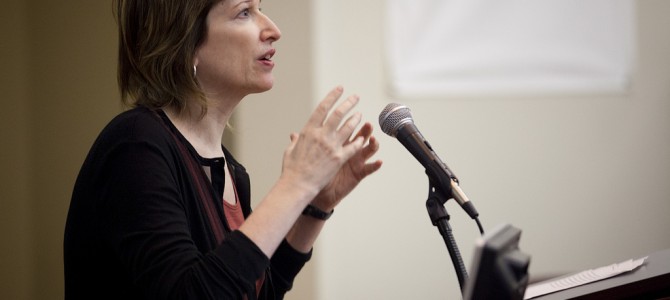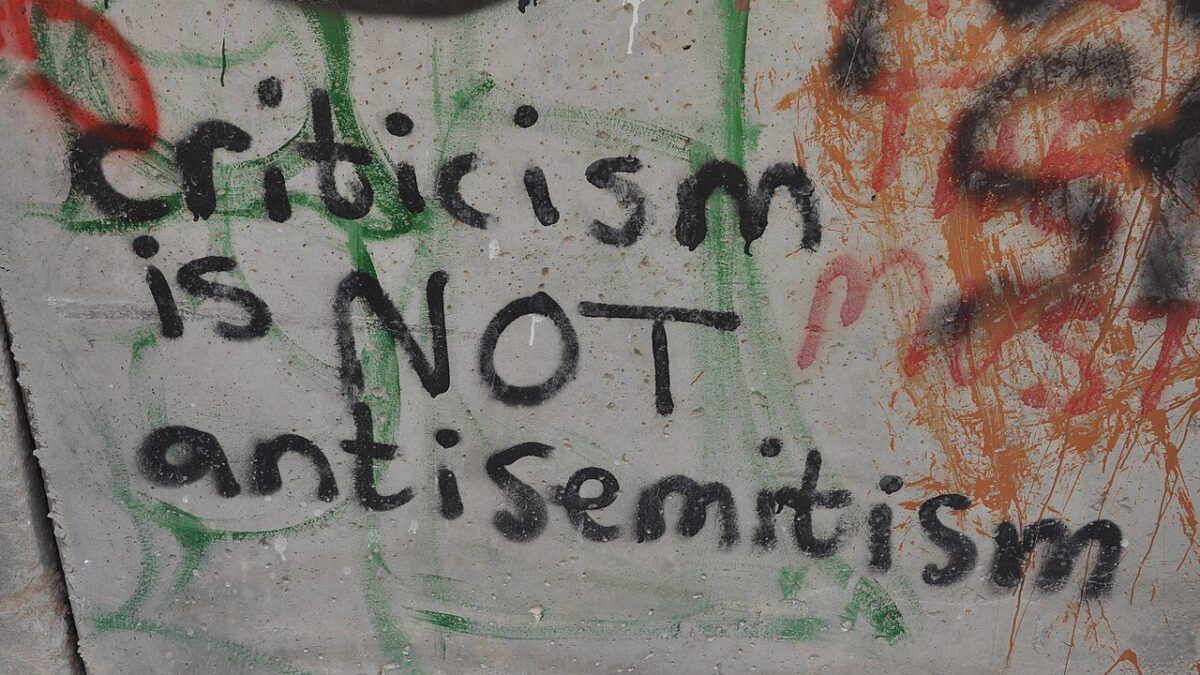
If the suffocating political correctness that is currently smothering honest national discourse comes to an end anytime soon, it will almost certainly be because of the ordeal experienced by Laura Kipnis.
For those who don’t know, Kipnis is a professor at Northwestern University who recently had the temerity, the audacity, the unmitigated gall to…write an article suggesting that perhaps college students can take care of themselves in the bedroom, even when professors are involved. And not only that, but Kipnis actually mocked the poor, abused special snowflakes who might be taken advantage of by their professors. Look:
If this is feminism, it’s feminism hijacked by melodrama. The melodramatic imagination’s obsession with helpless victims and powerful predators is what’s shaping the conversation of the moment, to the detriment of those whose interests are supposedly being protected, namely students. The result? Students’ sense of vulnerability is skyrocketing.
Actually, there’s no point in pretending to be outraged by this, because everything Kipnis said in the essay, especially the above quote, is unambiguously correct. But, of course, the melodramatics she denounces couldn’t stand it and launched protests against her for her insensitivity. Some even showed up to the office of Northwestern’s President carrying mattresses (never mind the irony that this now looks like a symbol of false rape accusations).
Who’s Really Suffering From the Chilling Effect?
However, the story doesn’t stop there, because if it did, we could ignore it. Rather, two anonymous students accused Kipnis of violating Title IX for daring to write her essay and, as a result, she was subjected to a Star Chamber-esque inquiry by an outside law firm. She has since been apparently cleared of all charges, but not before writing a follow-up essay about the fairly harrowing experience.
Other writers have opined at great length about the horrors of the theory of justice that led to Kipnis being accused in this manner. I won’t join their ranks, because they’ve pretty much said it all already. Rather, I want to focus on an element of Kipnis’ second essay that appears to have gone unremarked, and yet which seems to me to be the most frightening aspect. I refer to the reasoning behind one of the charges against her. Kipnis’ essay has been placed behind a pay-wall at time of writing, so I can’t quote it directly, though I did manage to read it before it was snapped up. However, instead I will quote David French’s excellent description:
It turned out there were two complainants, one who filed “on behalf of the university community,” claiming that Kipnis’s essay would have a “chilling effect” on students’ reports of sexual misconduct.
Got that? A “chilling effect.” In other words, a victim who read the essay might feel mocked, and therefore too ashamed to say anything about what happened to him or her.
Oversensitive feminist boilerplate, right? Not so fast. Contained in this argument is a philosophical admission that, when placed in the context of wider feminist activism, should chill us to the bone. I refer to the admission that “chilling effects” exist.
Why is this so chilling, when coming from a feminist? Well, one of the most nauseatingly naive talking points employed by the defenders of social media shaming campaigns (many of which are spearheaded by feminists) is that these campaigns don’t amount to censorship or attacks on free speech because they’re not driven by the government. Jezebel gives a good (which is to say, bad) example of this trope:
Bros/MRAs/bigots/internet commenters/the population at large: We don’t think “free speech” means what you think it means.[…]
If you publicly express yourself in a manner that is offensive, hurtful, or just plain dumb, strangers might contact your friends/family/school/employer and tell them what you did. That is not infringing on your right to free speech; it’s pointing out how you choose to exercise that right. Like the rest of the federal constitution, the First Amendment protects us from the government, not from private companies, which may be able to fire or otherwise punish you for stuff you say, even if it’s outside of work.
And unfortunately, Jezebel isn’t alone. The Washington Post, which could barely contain its glee over the Twitter suspension of the highly controversial journalist Charles C. Johnson, made something of a similar argument in defense of that suspension:
See, there’s a popular misconception that moderation on social networks and other Web sites is governed by the First Amendment. (For more on this mistaken point of view, plz see the comments section of virtually any Washington Post story.) That is not, however, technically correct. The First Amendment defines the relationship between you, as a citizen, and the government. It does not define your relationship between, say, you and a private corporation, or you and the university you attend, or you and your neighborhood association.
Free Speech Rights for Me, but Not for Thee
Now, I’m not here to defend Johnson, or any of the various groups that Jezebel’s comment is addressed to. But what I am here to say is that anytime a feminist raises this argument, you should immediately ask them to give their opinion on the Kipnis case. If they’re honest in their dismissal of chilling effects, they’ll side with Kipnis. But if they don’t (and this seems likely in the case of Jezebel, at least), then we’ve gotten a very telling insight into the mind of the radical Left, and radical feminists, especially.
Because if Kipnis’ essays, which go to great pains not to name or shame anyone in particular (so much so that the one student who complained of this has since dropped her complaint), can have a chilling effect, then imagine what effect, say, the #CancelColbert movement, or the spontaneous protest against Daniel Tosh for a rape joke can have. For that matter, imagine what effect filing Title IX complaints against professors who voice unpopular opinions can have! If they’re not already tenured, the answer is probably nothing good.
The feminists who are eager to defend these latter cases, and yet also believe that Kipnis’ speech is “chilling,” have made a terrible blunder and let their mask slip, confirming something that their critics have believed for a while. That is, they are not simply supporters of the unbridled right to criticize. Rather, they are well aware of what a chilling effect is and that their shaming tactics can have one, and they further believe that this is fine, because they think their enemies don’t deserve to speak. You see this in the unbridled racism of Suey Park, or the nauseating double standards advocated by the likes of Anita Sarkeesian.
The message is always the same: When you do it to us, it’s a chilling effect, but when we do it to you, it doesn’t count, because you’re some combination of white, male, and privileged. “Rights for me, but not for thee” is the subconscious rallying cry of the new Left, and every feminist who supported the attack on Kipnis just dragged that ugly message to the forefront. That is, if certain commentators outright admitting to believing this didn’t already do so.
These advocates of oppression as a protection racket against criticism are to be congratulated for their honesty, and they have a right to their opinions. But the fact that these opinions are driving the dismissal of free speech claims on the feminist Left is a piece of knowledge that conservatives, libertarians and liberal defenders of speech should never let the world forget. And even when the chilling effect reaches subzero temperatures, they should continue to breathe fire at the blizzard of special snowflakes causing it.
The best way to defend free speech in the modern age is not to shut up. And thanks to Laura Kipnis, hopefully many others will never think of shutting up again.









